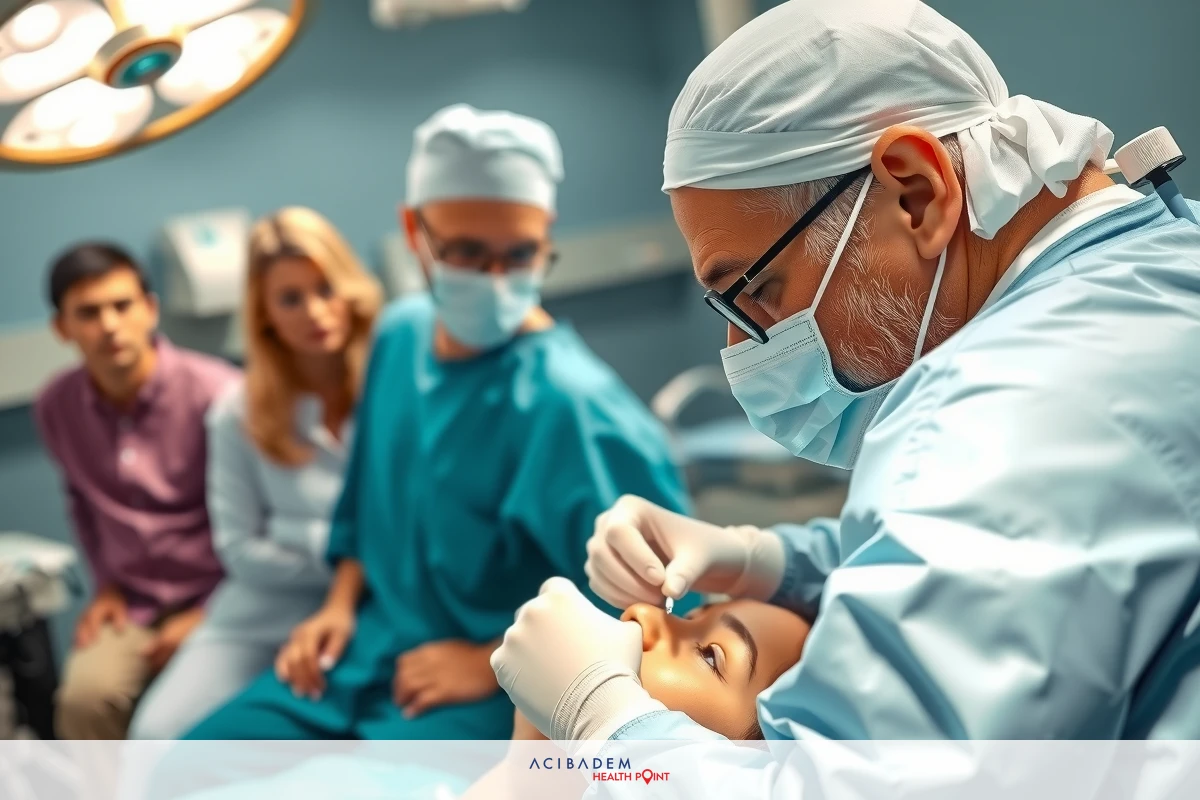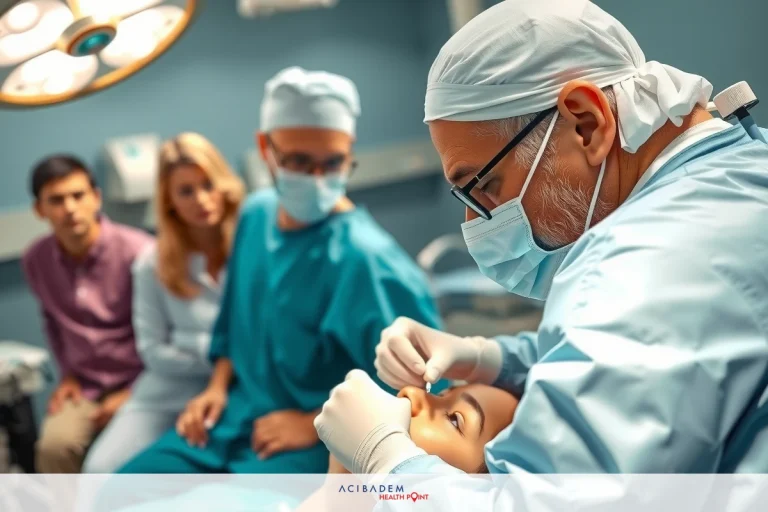Is Nose Surgery Dangerous?
Is Nose Surgery Dangerous? Nose surgery, also known as rhinoplasty, is a common but complex procedure that requires the expertise of a skilled surgeon. It’s performed for various reasons, from improving the appearance of the nose to correcting medical issues such as breathing difficulties or a deviated septum. While it is generally considered safe, like any surgical procedure, it carries some level of risks and complications.
The safety and success of nose surgery depend on several factors including the patient’s health condition, the surgeon’s skills and experience, and post-operative care. The risks and complications associated with the procedure can be minimized when performed by an experienced surgeon. On the other hand, the benefits can significantly improve a person’s quality of life and self-esteem. The aim of this article is to provide an informative overview of these aspects without going into medical jargon.
Safety of Nose Surgery
Nose surgery, also known as rhinoplasty, is generally considered safe when performed by an experienced and skilled surgeon. It’s important to understand that the safety of this procedure isn’t solely dependent on the surgical process itself, but also heavily influenced by pre-operative preparations and post-operative care. Patients are typically thoroughly evaluated before surgery to ensure they are good candidates for the procedure. This evaluation includes a comprehensive medical history review and sometimes radiographic studies to analyze the structure of the nose and face.
One key aspect to consider in terms of safety is the type of anesthesia used during surgery. Most often, nose surgeries are performed under general anesthesia, which has its own set of risks such as allergic reactions or breathing problems. However, these risks are extremely low and anesthesiologists take several precautions to prevent any complications. Post-operatively, patients may experience some side effects such as swelling, bruising around the eyes, nosebleeds or stuffiness of the nose. These are usually temporary and resolve within a few weeks.

Another safety aspect worth mentioning is infection risk. Like any surgery, there’s a small chance of developing an infection after a rhinoplasty. To mitigate this risk, patients are typically prescribed antibiotics following their procedure. Other possible complications include poor wound healing, skin discoloration, or unfavorable scarring, but these are relatively rare. Despite these potential risks, when weighing up the benefits – such as improved breathing function or enhanced aesthetic appearance – many people find that the potential for success outweighs the associated risks. Overall, safety in nose surgery is a multi-faceted issue involving careful patient selection, surgical precision and diligent aftercare.
Is Nose Surgery Dangerous?: Potential Risks and Complications
It’s paramount to understand that while nose surgery is generally safe, it does come with potential risks and complications. Every surgical procedure, no matter how minor or major, carries some degree of risk. The same is true for rhinoplasty. It’s essential to have a clear understanding of these potential issues before deciding to undergo the procedure.
One common risk associated with nose surgery is bleeding. While minor bleeding or oozing is expected in the immediate post-operative period, severe bleeding is rare but can occur. Patients with high blood pressure or those taking certain medications may be at a higher risk. Another potential complication is poor wound healing, which can lead to scarring. This is particularly a concern for individuals who smoke or have certain underlying health conditions that impair healing.
In addition to these physical risks, there are also aesthetic risks involved in nose surgery. These include asymmetry, where the nose may not be perfectly aligned or balanced after surgery, and dissatisfaction with the cosmetic outcome. Some patients may feel their new nose doesn’t match their expectations or doesn’t fit well with their other facial features. Furthermore, in some cases, there might be a need for revision surgery if the initial result isn’t satisfactory or if there are functional issues such as breathing difficulties post-surgery. These potential risks highlight the importance of having realistic expectations about the outcome and choosing a skilled and experienced surgeon to minimize the likelihood of complications.
Is Nose Surgery Dangerous?: Benefits and Success Rate
Nose surgery, while complex, has a high success rate and yields numerous benefits that can significantly improve the quality of life for patients. The success of rhinoplasty is multifaceted and depends on various factors such as the surgeon’s skill, the patient’s health condition, and post-operative care. However, when performed by an experienced surgeon, the success rate for nose surgery is generally very high.
One of the primary benefits of nose surgery is the improvement in breathing function. For individuals with a deviated septum or other structural issues in the nose that impede airflow, rhinoplasty can provide significant relief. This benefit extends beyond just physical comfort; improved breathing can lead to better sleep, increased energy levels, and overall better health. Another significant benefit is the increase in self- confidence that often comes with improved aesthetic appearance. For many people, their nose plays a major role in their self-image. Altering its shape or size to better fit their desired look can bring about a boost in self-esteem.
However, it’s important to note that while the benefits are substantial, they must be weighed against potential risks and complications. Patient satisfaction after rhinoplasty is generally high, but dissatisfaction can occur if expectations are not met or complications arise. Therefore, clear communication with your surgeon about what you hope to achieve from the surgery and understanding the realistic outcomes are key components to ensuring a successful result. It’s also important to remember that while nose surgery has a high success rate, individual results may vary based on specific circumstances and factors.
Frequently Asked Questions
Is nose surgery painful?
Most patients experience some level of discomfort after nose surgery, but it is usually well-managed with prescribed pain medication. The level of pain varies from person to person, and it typically subsides within a few days.
How long does it take to recover from nose surgery?
The recovery period for nose surgery can vary depending on the individual and the extent of the procedure. Generally, patients can expect swelling and bruising to gradually subside within a few weeks. However, complete healing and final results may take several months. Your surgeon will provide you with specific post-operative care instructions to facilitate a smooth recovery.
Will there be visible scarring after nose surgery?
In most cases, the incisions made during nose surgery are hidden inside the nostrils or along the natural creases of the nose, resulting in minimal visible scarring. However, some individuals may have a higher tendency to develop hypertrophic or keloid scars. Your surgeon will take necessary precautions and provide guidance on scar management techniques to minimize their appearance.
Can I wear glasses after nose surgery?
It is generally recommended to avoid putting pressure on the healing nasal structures immediately after surgery. If you wear glasses, your surgeon will advise you on when it is safe to resume wearing them and may suggest temporary alternatives such as taping the glasses to your forehead during the initial healing phase.
Is nose surgery covered by insurance?
Insurance coverage for nose surgery depends on various factors such as the purpose of the procedure and your insurance policy. Some insurance companies may cover rhinoplasty if it is done for medical reasons, such as correcting a deviated septum that impairs breathing. It is best to consult with your insurance provider directly to understand your specific coverage criteria.











